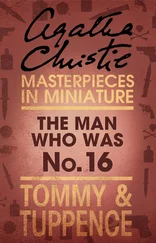“Excuse me if I enjoy myself rather obviously!” he said to Gregory, smiling. “I don’t often have the luck to have a dream like this. It is new to me for a nightmare to lead to a lobster. It is commonly the other way.”
“You are not asleep, I assure you,” said Gregory. “You are, on the contrary, close to the most actual and rousing moment of your existence. Ah, here comes your champagne! I admit that there may be a slight disproportion, let us say, between the inner arrangements of this excellent hotel and its simple and unpretentious exterior. But that is all our modesty. We are the most modest men that ever lived on earth.”
“And who are we?” asked Syme, emptying his champagne glass.
“It is quite simple,” replied Gregory. “We are the serious anarchists, in whom you do not believe.”
“Oh!” said Syme shortly. “You do yourselves well in drinks.”
“Yes, we are serious about everything,” answered Gregory.
Then after a pause he added
“If in a few moments this table begins to turn round a little, don’t put it down to your inroads into the champagne. I don’t wish you to do yourself an injustice.”
“Well, if I am not drunk, I am mad,” replied Syme with perfect calm; “but I trust I can behave like a gentleman in either condition. May I smoke?”
“Certainly!” said Gregory, producing a cigar-case. “Try one of mine.”
Syme took the cigar, clipped the end off with a cigar-cutter out of his waistcoat pocket, put it in his mouth, lit it slowly, and let out a long cloud of smoke. It is not a little to his credit that he performed these rites with so much composure, for almost before he had begun them the table at which he sat had begun to revolve, first slowly, and then rapidly, as if at an insane seance.
“You must not mind it,” said Gregory; “it’s a kind of screw.”
“Quite so,” said Syme placidly, “a kind of screw. How simple that is!”
The next moment the smoke of his cigar, which had been wavering across the room in snaky twists, went straight up as if from a factory chimney, and the two, with their chairs and table, shot down through the floor as if the earth had swallowed them. They went rattling down a kind of roaring chimney as rapidly as a lift cut loose, and they came with an abrupt bump to the bottom. But when Gregory threw open a pair of doors and let in a red subterranean light, Syme was still smoking with one leg thrown over the other, and had not turned a yellow hair.
Gregory led him down a low, vaulted passage, at the end of which was the red light. It was an enormous crimson lantern, nearly as big as a fireplace, fixed over a small but heavy iron door. In the door there was a sort of hatchway or grating, and on this Gregory struck five times. A heavy voice with a foreign accent asked him who he was. To this he gave the more or less unexpected reply, “Mr. Joseph Chamberlain.” The heavy hinges began to move; it was obviously some kind of password.
Inside the doorway the passage gleamed as if it were lined with a network of steel. On a second glance, Syme saw that the glittering pattern was really made up of ranks and ranks of rifles and revolvers, closely packed or interlocked.
“I must ask you to forgive me all these formalities,” said Gregory; “we have to be very strict here.”
“Oh, don’t apologise,” said Syme. “I know your passion for law and order,” and he stepped into the passage lined with the steel weapons. With his long, fair hair and rather foppish frock-coat, he looked a singularly frail and fanciful figure as he walked down that shining avenue of death.
They passed through several such passages, and came out at last into a queer steel chamber with curved walls, almost spherical in shape, but presenting, with its tiers of benches, something of the appearance of a scientific lecture-theatre. There were no rifles or pistols in this apartment, but round the walls of it were hung more dubious and dreadful shapes, things that looked like the bulbs of iron plants, or the eggs of iron birds. They were bombs, and the very room itself seemed like the inside of a bomb. Syme knocked his cigar ash off against the wall, and went in.
“And now, my dear Mr. Syme,” said Gregory, throwing himself in an expansive manner on the bench under the largest bomb, “now we are quite cosy, so let us talk properly. Now no human words can give you any notion of why I brought you here. It was one of those quite arbitrary emotions, like jumping off a cliff or falling in love. Suffice it to say that you were an inexpressibly irritating fellow, and, to do you justice, you are still. I would break twenty oaths of secrecy for the pleasure of taking you down a peg. That way you have of lighting a cigar would make a priest break the seal of confession. Well, you said that you were quite certain I was not a serious anarchist. Does this place strike you as being serious?”
“It does seem to have a moral under all its gaiety,” assented Syme; “but may I ask you two questions? You need not fear to give me information, because, as you remember, you very wisely extorted from me a promise not to tell the police, a promise I shall certainly keep. So it is in mere curiosity that I make my queries. First of all, what is it really all about? What is it you object to? You want to abolish Government?”
“To abolish God!” said Gregory, opening the eyes of a fanatic. “We do not only want to upset a few despotisms and police regulations; that sort of anarchism does exist, but it is a mere branch of the Nonconformists. We dig deeper and we blow you higher. We wish to deny all those arbitrary distinctions of vice and virtue, honour and treachery, upon which mere rebels base themselves. The silly sentimentalists of the French Revolution talked of the Rights of Man! We hate Rights as we hate Wrongs. We have abolished Right and Wrong.”
“And Right and Left,” said Syme with a simple eagerness, “I hope you will abolish them too. They are much more troublesome to me.”
“You spoke of a second question,” snapped Gregory.
“With pleasure,” resumed Syme. “In all your present acts and surroundings there is a scientific attempt at secrecy. I have an aunt who lived over a shop, but this is the first time I have found people living from preference under a public-house. You have a heavy iron door. You cannot pass it without submitting to the humiliation of calling yourself Mr. Chamberlain. You surround yourself with steel instruments which make the place, if I may say so, more impressive than homelike. May I ask why, after taking all this trouble to barricade yourselves in the bowels of the earth, you then parade your whole secret by talking about anarchism to every silly woman in Saffron Park?”
Gregory smiled.
“The answer is simple,” he said. “I told you I was a serious anarchist, and you did not believe me. Nor do they believe me. Unless I took them into this infernal room they would not believe me.”
Syme smoked thoughtfully, and looked at him with interest. Gregory went on.
“The history of the thing might amuse you,” he said. “When first I became one of the New Anarchists I tried all kinds of respectable disguises. I dressed up as a bishop. I read up all about bishops in our anarchist pamphlets, in Superstition the Vampire and Priests of Prey. I certainly understood from them that bishops are strange and terrible old men keeping a cruel secret from mankind. I was misinformed. When on my first appearing in episcopal gaiters in a drawing-room I cried out in a voice of thunder, ‘Down! down! presumptuous human reason!’ they found out in some way that I was not a bishop at all. I was nabbed at once. Then I made up as a millionaire; but I defended Capital with so much intelligence that a fool could see that I was quite poor. Then I tried being a major. Now I am a humanitarian myself, but I have, I hope, enough intellectual breadth to understand the position of those who, like Nietzsche, admire violence the proud, mad war of Nature and all that, you know. I threw myself into the major. I drew my sword and waved it constantly. I called out ‘Blood!’ abstractedly, like a man calling for wine. I often said, ‘Let the weak perish; it is the Law.’ Well, well, it seems majors don’t do this. I was nabbed again. At last I went in despair to the President of the Central Anarchist Council, who is the greatest man in Europe.”
Читать дальше








